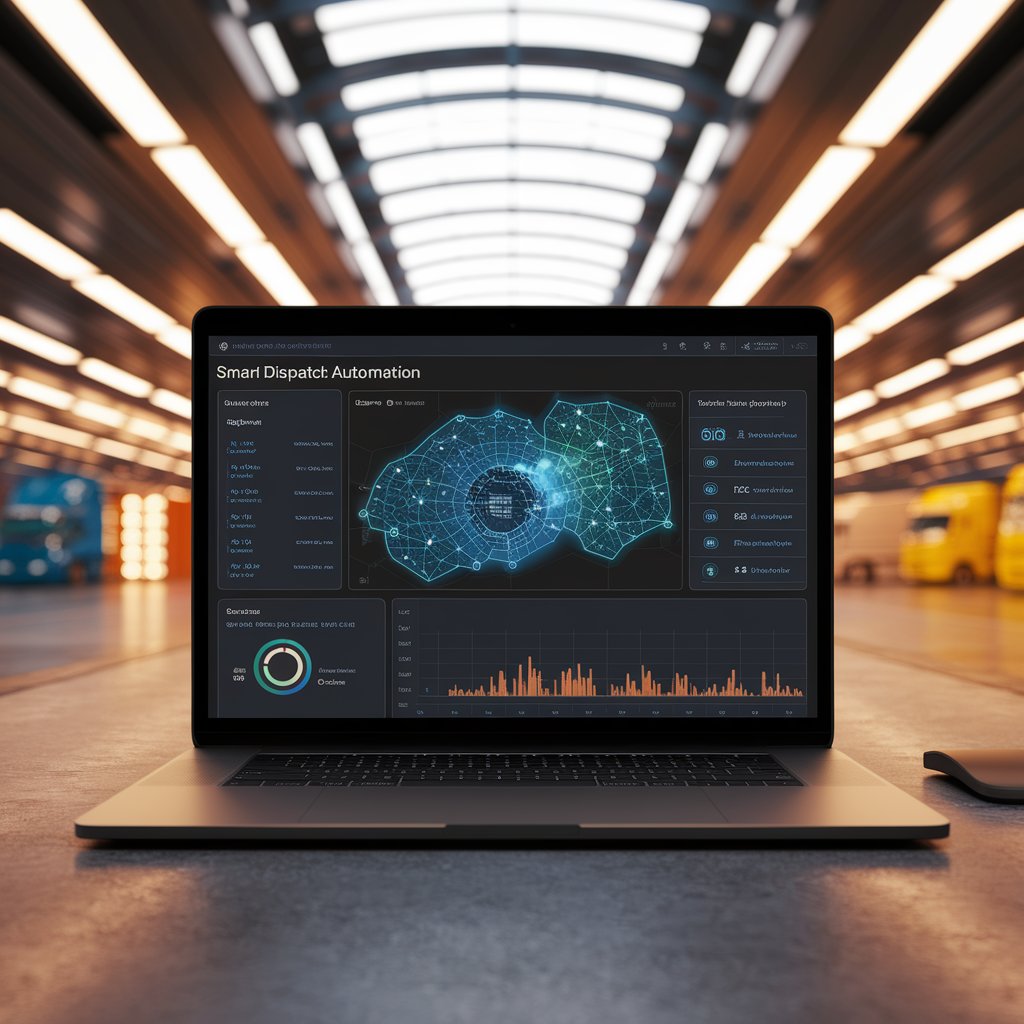Smart Dispatch Automation: Revolutionizing Freight Coordination with AI

Introduction
Linbis redefines this process through smart dispatch automation, a solution that uses artificial intelligence, predictive analytics, and real-time communication to automatically assign, track, and optimize every dispatch operation.
With Linbis, logistics teams move from reactive scheduling to autonomous dispatch intelligence.
Step 1: Unified Data and System Integration
Linbis begins by connecting all data sources involved in dispatching:
- Order and booking data from ERP or CRM.
- Carrier and fleet information including routes and vehicle availability.
- Warehouse readiness status for outbound shipments.
- GPS and IoT feeds for real-time location tracking.
- Customer preferences for delivery times and locations.
This creates a single, connected ecosystem where dispatching happens automatically — without endless phone calls or spreadsheets.
Step 2: AI-Powered Dispatch Assignment
At the heart of Linbis lies its AI dispatch engine, which automates allocation based on performance, efficiency, and cost:
- Matches shipments to the most suitable drivers or carriers.
- Calculates route efficiency and fuel optimization in seconds.
- Adjusts dynamically when new orders or changes occur.
- Learns from past data to continuously refine dispatch logic.
Every decision is made in real time — faster and smarter than any manual process.
Step 3: Real-Time Tracking and Communication
Once dispatches are assigned, Linbis ensures seamless coordination through real-time visibility and messaging:
- Live tracking maps display driver locations and route progress.
- Automated status updates (picked up, in transit, delivered).
- Smart notifications sent to customers and dispatchers simultaneously.
- Two-way communication integrated directly into the platform.
This eliminates confusion and ensures that everyone — from driver to client — stays informed.

Step 4: Workflow Automation and Exception Handling
Dispatching isn’t just about scheduling — it’s about adapting.
Linbis automates entire workflows for smooth exception management:
- Automatically reassigns loads if a driver is delayed.
- Triggers alert workflows for route deviations or late deliveries.
- Updates delivery documents and invoices instantly upon completion.
- Synchronizes data with connected systems (TMS, WMS, CRM).
With Linbis, dispatching becomes self-regulating and self-correcting.
Step 5: Predictive Scheduling and Capacity Planning
The system doesn’t just automate — it anticipates:
- Forecasts future dispatch loads based on sales and historical data.
- Predicts peak hours or seasonal demand spikes.
- Pre-allocates resources and routes for high-efficiency utilization.
- Suggests rebalancing options between regions or fleets.
Linbis empowers logistics managers to stay ahead — not just keep up.
Step 6: KPI Dashboards and Analytics
Linbis turns dispatch automation into measurable performance:
- Average dispatch time and delivery accuracy.
- Carrier utilization and fleet efficiency.
- Cost per route and per delivery.
- Predictive trend charts for performance forecasting.
All KPIs update automatically in the smart dispatch dashboard, giving managers instant insight into efficiency, cost, and reliability.
Step 7: Continuous Learning and Optimization
Every dispatch improves the next one:
- The system learns from driver performance and route outcomes.
- Refines AI allocation algorithms automatically.
- Suggests rule updates for better load balancing.
- Identifies patterns that reduce idle time and missed deliveries.
Linbis evolves in real time — creating a self-learning dispatch network.

Advanced Features
- AI-driven dispatch assignment and load optimization.
- Real-time tracking and smart communication.
- Workflow automation and exception management.
- Predictive capacity planning and KPI dashboards.
- Seamless integration with ERP, TMS, and CRM systems.
Real-World Example 🚛
A freight operator managing 250 daily shipments adopted Linbis smart dispatch automation to streamline coordination.
After 2 months:
- Dispatch assignment time dropped by 80%.
- On-time delivery rate improved by 37%.
- Manual communication reduced by 90%.
- Fleet utilization increased by 25%.
Now, their dispatch center runs automatically — powered by AI.

Benefits 📈
- Efficiency: Automate dispatch tasks in real time.
- Speed: Reduce manual scheduling and communication.
- Accuracy: Eliminate assignment errors and missed deliveries.
- Scalability: Manage thousands of shipments without extra labor.
- Visibility: Monitor all dispatches from one smart dashboard.
Conclusion
With smart dispatch automation, Linbis brings intelligence, automation, and foresight to logistics coordination.
By connecting systems, automating workflows, and predicting demand, Linbis enables dispatchers to achieve faster, more accurate, and more efficient operations.
In modern logistics, dispatching isn’t a manual process — it’s an automated ecosystem.
